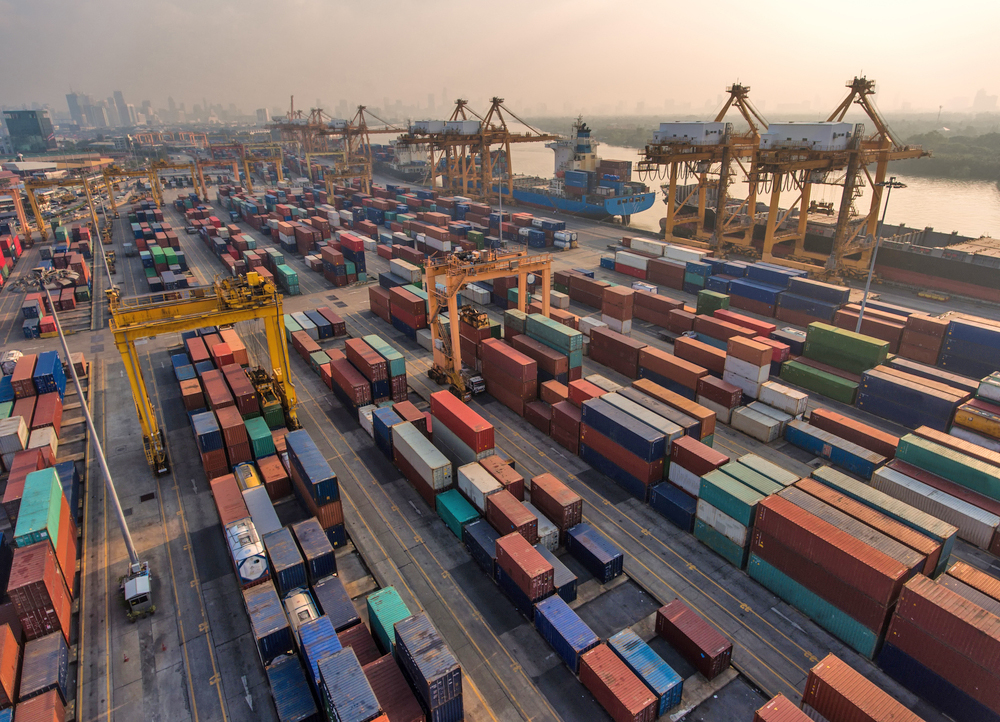Supply chains are complex systems that typically involve a multitude of actors and activities, and it can be extremely difficult to capture one entire chain, let alone the networks of criss-crossing and interlinked chains. A platform of some sort is needed to put suchlike chains together. The concept of platform economy as we understand it, involving digital platforms and advanced accessory technologies such as blockchain, offers in this context vast opportunities to more efficiently managed supply chains and logistics. Information over chains and networks can be gathered and processed in platforms, which not only helps steering and monitoring of entities but may facilitate optimisation of chains, produce reliable accounts, inspire new business innovations, etc.
In this signal post we explore possibilities with platforms for supply chains and logistics and take a look at examples from forerunner industries.

Information management in multi-actor supply chain networks
Digital platforms allow information management throughout the supply chain, enabling data to accumulate from each step of the chain. Simultaneously, access to data can be granted to any involved actor, including the end user. In essence, a product or service can be accompanied by a digital twin, i.e. a virtual counterpart for gathering data and information over the lifecycle from design and manufacturing to use and final disposal.
One practical example comes from diamond business, where platforms and blockchain technologies are used for the digital record for diamonds, especially to verify origins and authenticity. Similarly, Walmart among others is piloting tracking of food products to support food safety. Suchlike information platforms serve especially the end customer, who can be sure of, for example, the origins, fair production conditions or undisrupted cold chain of the product or service that they buy. But also supply side actors benefit, and one well established example of using backfeed information comes from elevator industry, where Kone has successfully deployed IoT-type solutions to make use of real-time information collected from their products to serve maintenance services as well as product development.
Research on this area is intensive, see for example a study from our project on platforms being used in service-driven manufacturing to orchestrate networks.
Platform innovations in freight and logistics
Logistics constitutes one specific chain of activities in supply chains. Platforms and blockchain have huge potential in this area; a fact acknowledged lately in the Transport Sector Growth Programme by the Finnish Government (full report in Finnish). Firstly, information stored on digital platforms can make the logistics chain faster and more efficient, for example by providing real-time information from one phase to the next or by replacing manual bureaucratic processes with digitalised and automated equivalents. Information of movements but also information of transport related emissions could be recorded reliably.
Secondly, platform economy enables new types of business models for logistics services, as information of material flows is available to construct centralised as well as decentralised delivery streams in new ways. For example, in urban freight novel app-based logistics services have emerged, especially as a response to growing e-commerce. Suchlike commercial and peer-to-peer services can connect demand and supply for instant deliveries via a digital platform in just a few hours. A more large-scale example is the free web-based freight brokerage platform Drive4Schenker that functions as a European-wide marketplace for deliveries and supports digital handling of documentation.
Selected articles and websites
CBINSIGHTS: How Blockchain Could Transform The Way You Buy Your Groceries
Dablanc Laetitia et al. (2017): The rise of on-demand ‘Instant Deliveries’ in European cities, Supply Chain Forum: An International Journal
DB Schenker: Drive4Schenker
Eloranta, Turunen (2016). Platforms in service-driven manufacturing: Leveraging complexity by connecting, sharing, and integrating, Industrial Marketing Management, Vol 55, pp. 178-186
Finnish Government: Transport Sector Growth Programme will give companies a boost in the international market
Forbes: IBM Forges Blockchain Collaboration With Nestlé & Walmart In Global Food Safety
Fortune: The Diamond Industry Is Obsessed With the Blockchain
Fortune: Walmart and IBM Are Partnering to Put Chinese Pork on a Blockchain
Kone: Taking elevator services to the next level
Ministry of Transport and Communications: Applying blockchain technology and its impacts on transport and communications
Techncrunch: Blockchain has the potential to revolutionize the supply chain
Työ- ja elinkeinoministeriö: Liikennealan kansallinen kasvuohjelma 2018 – 2022
World Economic Forum: The digital transformation of logistics: Threat and opportunity
